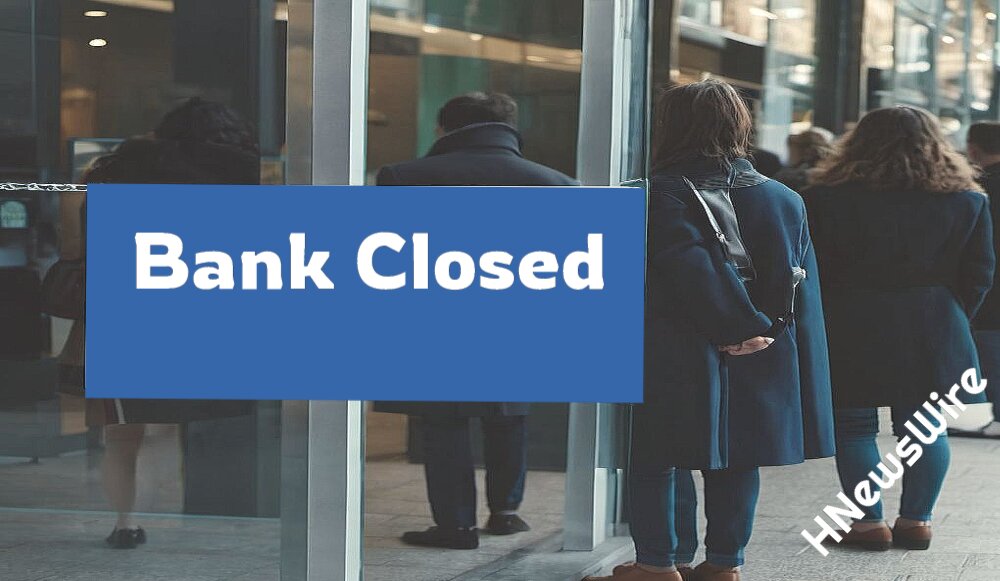
By Anna Cooban, CNN
4 minute read
London CNN —
Nearly a year on from a banking crisis that led to the collapse of three US regional lenders and the emergency takeover of Credit Suisse in Europe, a fresh chill is running through banks as far apart as New York, Tokyo and Zurich.
Common to all of them — mounting losses on lending to the troubled commercial property sector.
On Wednesday, shares in New York Community Bancorp (NYCB) plunged 38% after it reported a loss of $252 million for the last quarter. The regional lender set aside $552 million in the fourth quarter to absorb loan losses, up from $62 million in the previous quarter. The increase was driven partly by expected losses on a loan used to finance an office building, it said.
The lender helped drag the KBW Regional Banking Index down 6% on Wednesday, its biggest daily fall since last May — the same month California-based First Republic became the third US banking casualty last year.
The index slid further Thursday and was down 4.8% by 11.19 a.m. ET as shares in NYCB, as well as other regional banks, suffered sharp losses. NYCB’s stock fell almost 13%, Banc of California 8%, and BankUnited 8%.
A big chunk of NYCB’s losses were tied to office buildings, it said in its earnings statement. CEO Thomas Cangemi referred to “general office weaknesses throughout the country” in a call with investors.
Since the turmoil last spring, investors and regulators have been on high alert for renewed stress among banks, homing in on their exposure to the ailing commercial real estate market.

A screen displays the trading information for New York Community Bancorp at the New York Stock Exchange on January 31, 2024.Brendan McDermid/Reuters
The value of many buildings has plummeted as millions of workers have stuck with pandemic-era remote working, leaving vast tranches of office space vacant or underused. At the same time, historically high interest rates have made it harder for real estate developers — who often take out huge loans to finance projects — to make good on their repayments.
On Thursday, Japan’s Aozora Bank said bad loans tied to US offices were partly to blame for its projected annual loss of 28 billion yen ($190 million) last year. The lender had previously expected to make a net profit of 24 billion yen ($160 million). The news sent its shares plunging over 21%.
The bank said it would take another year or two for the US office market to “stabilize” as more people returned to work in-person, and as the Federal Reserve moves from hiking interest rates to cutting them.
Losses are mounting in Europe, too. Swiss private bank and wealth manager Julius Baer announced Thursday that its adjusted profit had tanked 55% last year because it lost 586 million Swiss francs ($680 million) on loans made to a single “European conglomerate.” Its CEO Philipp Rickenbacher announced his departure in the wake of the losses.
Julius Baer declined to confirm the identity of the company to CNN.
But, according to a Reuters report, that company is Signa Group, an Austrian property developer that, in 2019, bought part of New York’s iconic Chrysler building. Several Signa subsidiaries filed for insolvency in December, Reuters reported.
Much bigger players are girding themselves for losses linked to commercial real estate.
Germany’s biggest lender Deutsche Bank said Thursday that it had allocated €123 million ($133 million) during the last quarter to absorb potential defaults on its US commercial real estate loans. That’s more than quadruple the amount it set aside during the same three-month period in 2022.
‘Small ripples’
Cangemi, of NYCB, said his company’s poor fourth quarter was partly the result of acquiring $13 billion worth of loans from now-failed Signature Bank, one of the three regional US lenders that collapsed during last year’s banking crisis.
Those lenders failed to anticipate and properly manage the consequences of soaring interest rates, and worried depositors frantically rushed to withdraw their cash. The old-fashioned bank runs sent financial markets into a panic that eventually pushed Credit Suisse — then one of the world’s biggest lenders — over the edge and prompted a hurried takeover by rival UBS.

The headquarters of Swiss private bank Julius Baer in Zurich, Switzerland in February 2022.Arnd Wiegmann/Reuters
Philip Lawlor, managing director of markets research at Wilshire Indexes, said the recent turbulence is unlikely to rock big, well-capitalized banks this time around.
“One should not be complacent,” he told CNN, noting that last year’s bank runs all “started with small ripples that just built and built.”
The KBW Bank Index, which tracks 24 leading US banks, is up 29% since hitting a low last May. Europe’s benchmark Stoxx Europe 600 Banks index, which tracks 42 big EU and UK banks, is up 23% since a low in late March.
Both indexes were trading lower on Thursday.
“This could be sort of a replay of what we saw last year — there could be contagion — but it could be limited to a number of smaller banks and not ripple through to the systemically important ones,” Lawlor said.
CNN’s Matt Egan contributed to this report.

Be gentle with your skin. Our soaps are kind to your skin and create a creamy, silky lather that is nourishing. Small batches are made by hand. We only use the best natural ingredients. There are no chemicals, phthalates, parabens, sodium laurel sulfate, or detergents. GraniteRidgeSoapworks
To Get 20% Of Use Coupon Code Bankster20 Or HNews20
![]()




